The Israeli army's shooting that killed more than 100 Gaza civilians in February is said to have been the "last straw" that made Mr. Biden lose patience with Tel Aviv.
Israeli Prime Minister Benjamin Netanyahu's decision to send a delegation to Washington to present to the US administration his plan to launch an offensive on Rafah, Hamas's last stronghold in the Gaza Strip, reflects the true state of relations between the two close allies, as the Gaza war has lasted for more than five months.
The Israeli prime minister regularly promises the public a total victory over Hamas and boasts of Israel's independent decision-making, despite tensions with US President Joe Biden.
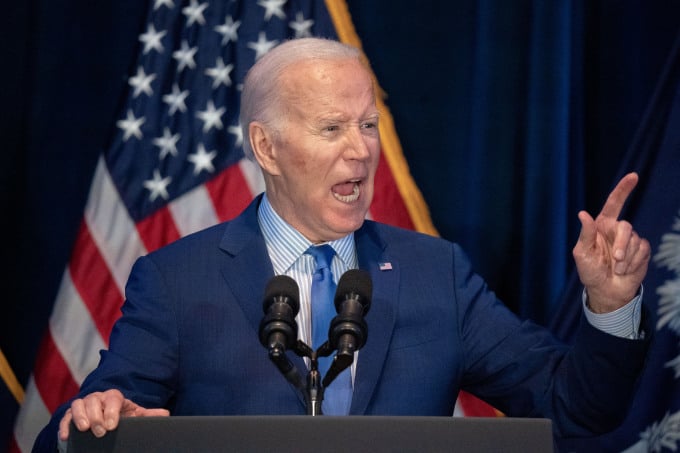
US President Joe Biden in South Carolina on January 27. Photo: AFP
However, the idea that Israel could act freely without US support and backing has been questioned since Tel Aviv launched its offensive on Gaza last October.
President Biden initially supported Israel's actions, but as civilian casualties in Gaza mounted, he stepped up pressure on Prime Minister Netanyahu to end the campaign and negotiate a ceasefire.
Biden has recently signaled a more assertive stance, with his decision to airdrop aid into Gaza and build a floating dock to bring essential goods into the region more quickly. The US has also slowed down arms deliveries to Israel in the face of growing public opposition.
The initial message from the White House, sent through Benny Gantz, Israel's wartime cabinet minister, who visited Washington earlier this month, stressed that the US administration would not allow Israel to advance into the city of Rafah during the Muslim holy month of Ramadan, which could cause a real humanitarian disaster.
But this warning seems to have been ignored by Prime Minister Netanyahu, who announced that the Rafah offensive would take place soon. That angered the US and it decided to take a more drastic move.
President Biden spoke with Prime Minister Netanyahu earlier this week, asking Israel to send a delegation to Washington to discuss the planned Rafah offensive.
Israel's leadership has decided to send Strategic Affairs Minister Ron Dermer and National Security Adviser Tzachi Hanebbi on the trip next week. However, Israel's defense chiefs only learned about it through a White House announcement. Prime Minister Netanyahu did not inform them.
Observers say the dispatch of the two senior officials to Washington is a move by Israel to appease it, realizing that the US has completely lost patience with it. President Biden’s fundamental changes in policy towards Israel began in late February, after the “last straw” was the death of more than 100 civilians in Gaza while surrounding a convoy of aid trucks.
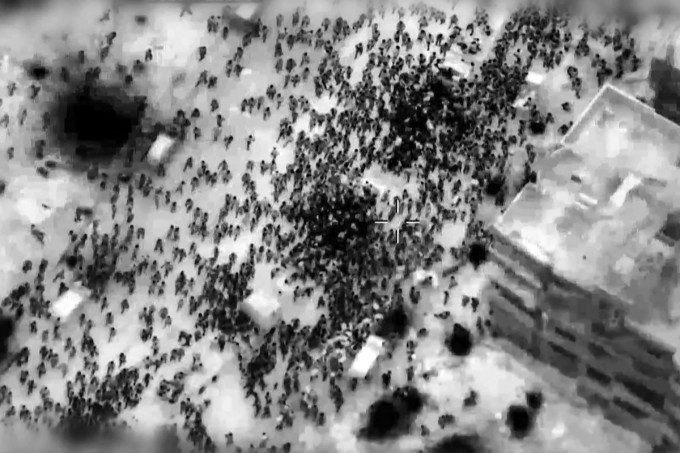
Crowds surround aid trucks during a shooting on February 29. Photo: IDF
Gaza officials accused Israeli soldiers of opening fire on civilians trying to reach aid, causing chaos that left 115 people dead and at least 750 injured.
Although Israel explained that its soldiers opened fire to "neutralize a threat" when they detected a suspicious group approaching as the crowd scrambled for aid, the tragedy caused international outrage and immediately made President Biden lose patience.
Since then, the US has issued stern warnings. The most notable expression was a statement by Senate Majority Leader Chuck Schumer last week, when he described Prime Minister Netanyahu as an "obstacle to peace " and called for new elections in Israel.
Schumer's statement was seen as a blow to Netanyahu's reputation, even equivalent to a call for his ouster. President Biden said Schumer's comments were "a good speech."
According to observers, the message the US is sending is that they have lost patience and are putting increasing pressure on Israel to prevent further actions by its army in Gaza.
The US influence on Israel was evident from the beginning of the conflict, when President Biden warned Tel Aviv not to open a new front with Iran by confronting Hezbollah, or through regular meetings between administration officials and Israel’s wartime cabinet to discuss plans for action. Since then, Israel’s dependence on the US has deepened to an alarming degree.
Public pressure from the US and the European Union (EU) against the Rafah offensive has significantly limited Israel's options for action.
The international community has expressed concern about the Rafah offensive because more than 1.5 million Palestinian civilians are concentrated there, in a situation on the brink of a humanitarian disaster.
The Israeli public is largely unaware of this, with most state media downplaying the crisis. But Hamas is also exaggerating the humanitarian situation in Gaza, and it is affecting the international community's response and the prospects for a ceasefire, according to Haaretz columnist Amos Harel.
The US is stepping up pressure on Israel to reach a hostage release deal combined with a ceasefire with Hamas. Under the deal, the two sides will stop fighting for six weeks, and Israel will release nearly 1,000 Palestinian prisoners in exchange for about 40 hostages being held by Hamas.
However, the parties have not yet reached any agreement and information about the progress of the negotiations in Doha, the capital of Qatar, is still contradictory. The bright spot is that some members of the Israeli delegation are still in Doha and the negotiations are still ongoing, suggesting that there is still a chance of progress.
This was something that was absent from previous rounds of talks in Paris and Cairo, where the Israeli delegation quickly returned home without achieving any positive signals.
US Secretary of State Anthony Blinken said on March 20 that the parties were getting closer to reaching a ceasefire and hostage exchange agreement, adding that they were only waiting for Hamas' approval.
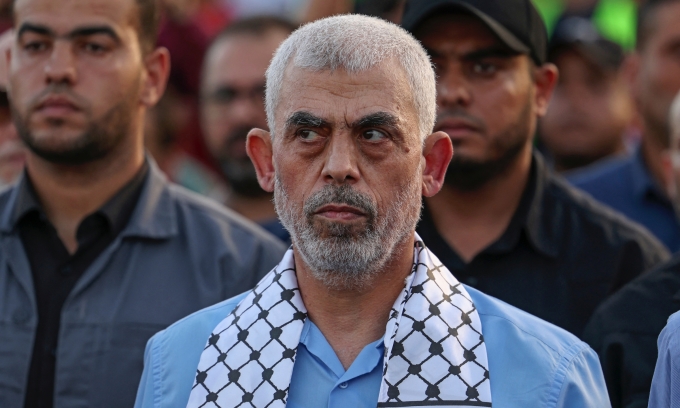
Hamas leader Yahya Sinwar in the Gaza Strip in October 2022. Photo: AFP
The final decision rests with Yahya Sinwar, the leader of Hamas in Gaza. It is reported that communications with Sinwar have been disrupted because he is in hiding from the IDF and Israel's domestic security agency Shin Bet.
According to some sources, Sinwar lost patience with the details of the negotiations in late November 2023 and simply decided to support the deal without listening to any further advice from other Hamas leaders. This could happen again this time, Haaretz commentator Harel noted.
Many hope that a solution to the conflict in Gaza could be reached through a deal between Israel and Hamas, in which Sinwar and other Hamas leaders would leave Gaza in exchange for Israel's guarantee of their safety.
Vu Hoang (According to Haaretz )
Source link








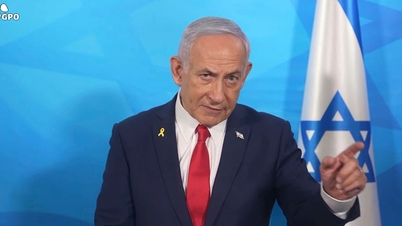




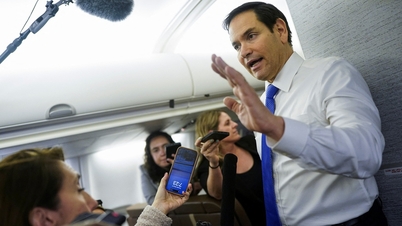


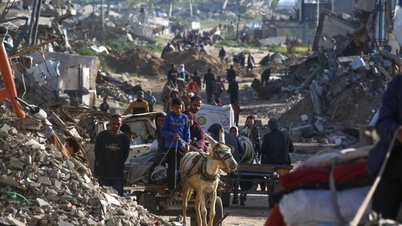













































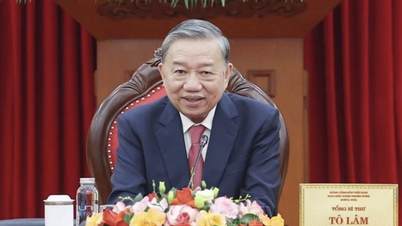












































Comment (0)